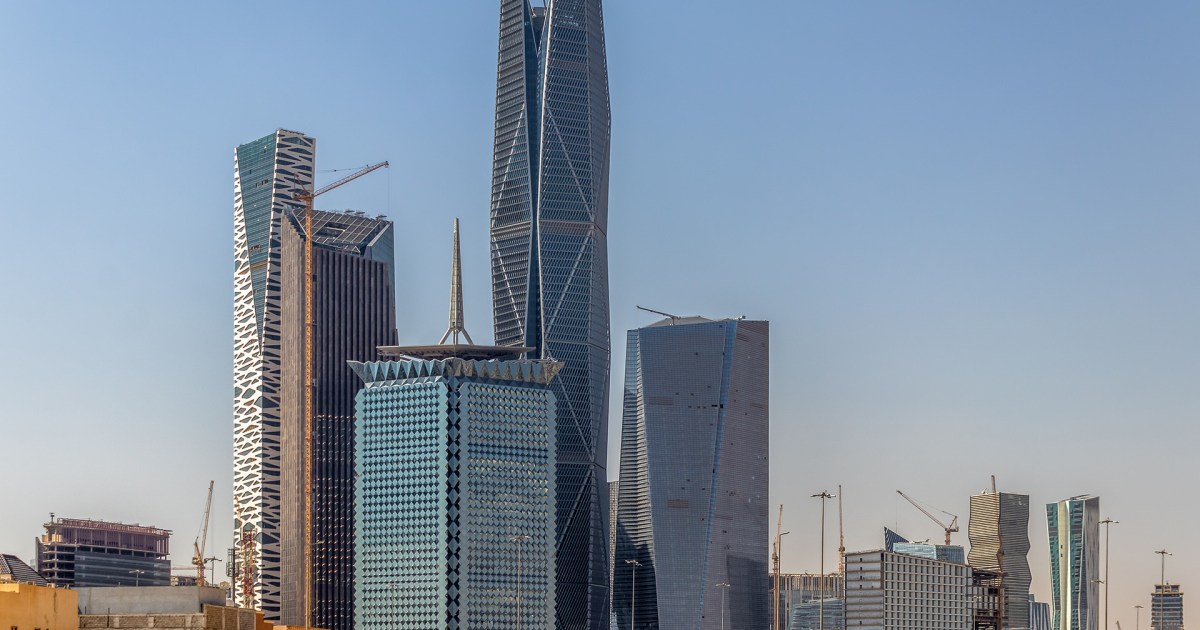Saudi Investment Minister Khalid Al-Falih announced today, Wednesday, that the Kingdom has granted licenses to 44 international companies to establish regional headquarters in the capital, Riyadh, as part of Saudi Arabia's efforts to become a regional commercial center, attracting foreign capital and skills.
A press release said that these companies include multinational companies in sectors including technology, food and beverage, consulting and construction, including Unilever, Baker Hughes and Siemens.
Saudi Arabia, the world's largest oil exporter, said in February that it would give foreign companies a chance until the end of 2023 to set up headquarters or risk losing government contracts, as they compete to attract foreign capital and skills.
This step comes within the framework of Crown Prince Mohammed bin Salman's efforts to diversify the economy and reduce dependence on oil by opening new areas that also create job opportunities for Saudis.
The move was seen by many as a direct challenge to Dubai, the wealthy emirate known as the region's business hub and home to many foreign companies.
investment future
Al-Falih told AFP that a total of "44 companies signed a transfer agreement and obtained final licenses for their transfer... from several sectors, countries and continents," without revealing the names of these companies.
"This is a very good number and a great success," he added on the sidelines of his participation in the "Future Investment Initiative" conference in Riyadh, noting that Saudi Arabia aspires to have "most of the major international companies" move to Riyadh.
"We have a short-term goal to reach 400 or 500 companies, but there is no ceiling," he said, adding, "The more companies there are, the more these companies will benefit and the Kingdom will benefit from the transfer of technologies, knowledge and investment opportunities."
I congratulate my colleagues in the Ministry of Investment and the Royal Commission for the City of Riyadh on the occasion of the announcement, during the Future Investment Initiative forum, of the issuance of 44 licenses to international companies that decided to make Riyadh their regional headquarters, and I thank everyone for their efforts to make Riyadh, and the Kingdom, an attractive destination for investments, regionally and globally.
pic.twitter.com/qEwR6Agrjr
— Khaled Al-Falih |
Khalid Al Falih (@Khalid_AlFalih) October 27, 2021
Among the incentives that Riyadh will give to foreign companies is the imposition of a corporate tax of 0% (zero%) for a period of 50 years, a 10-year exemption from the policy of “Saudisation” of work based on the employment of Saudis, and “preferential” treatment in government contracts, according to what was stated in a document seen by the French Agency.
Al-Falih stressed that "the direct and indirect benefits from the presence of companies (in Saudi Arabia) amount to 170 billion riyals ($45 billion)."
new headquarters
The CEO of the Royal Commission for Riyadh City, Fahd Al-Rasheed, said in a statement that the new headquarters will add 67 billion riyals ($18 billion) to the economy and provide about 30,000 job opportunities by 2030.
Al-Rasheed told Reuters he expects the 44 companies to move to Riyadh within a year, adding that some have already taken this step.
And the kingdom announced this year that 24 companies had concluded agreements to establish major regional offices, including Pepsi, Schlumberger, Deloitte, PwC and Bechtel, instead of monitoring their operations remotely from Dubai in the UAE.
And the European law firm DWF said today, Wednesday, that Riyadh will become its regional headquarters for the services it provides to companies.
Al-Rasheed stated that this step is not aimed at dismantling the operations of companies in the rest of the regions, and added, "We simply say: You should have a regional headquarters here, because this is simply not an economic contract that you can continue with or withdraw from, we want to see you for a long time."
We are pleased to welcome 44 international companies that chose #Saudi Arabia to be the headquarters of their regional offices and to receive their investment licenses during the #Future_Investment_Initiative forum in cooperation with the Royal Commission for Riyadh City pic.twitter.com/69dauXvaLr
— Ministry of Investment (@MISA) October 27, 2021
new rules
Al-Rasheed described the regional headquarters as housing all major decision-making functions, but it was not clear how all the companies described the Saudi headquarters.
Some people in business circles say it is highly unlikely that companies will close their operations in the UAE, and may simply transfer some of their operations to Saudi Arabia.
The Danish wind turbine maker Vestas, which is not among the 44 companies, told Reuters in a statement that it will move its Middle East sales headquarters from Dubai to Riyadh. Vestas is a global partner in sustainable energy solutions, and designs, manufactures, installs and service wind turbines in the whole world.
Saudi Arabia has embarked on economic and social reforms aimed at transforming the kingdom into an easier place to live and work and reduce red tape that has long hampered businesses.
But some attendees at the Future Investment Initiative summit, at which the announcement was made on Wednesday, noted, on condition of anonymity, continued uncertainty about regulations, taxes, high operating costs and a shortage of a skilled local workforce.
Some of them said that one example was the kingdom’s sudden decision in May 2020 to triple the value-added tax, and added that matters related to negotiating electricity fees would make the transition of manufacturing companies more difficult than financial companies.

